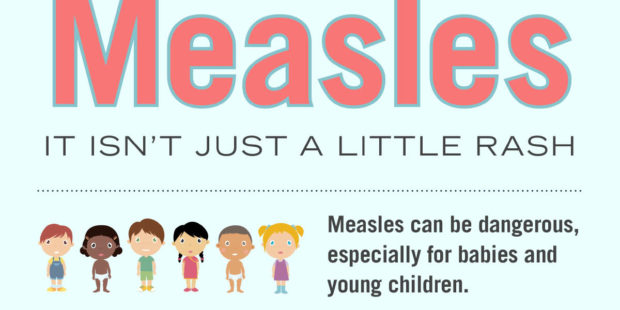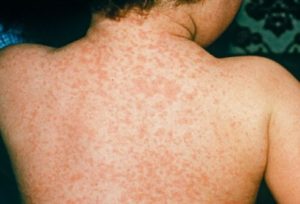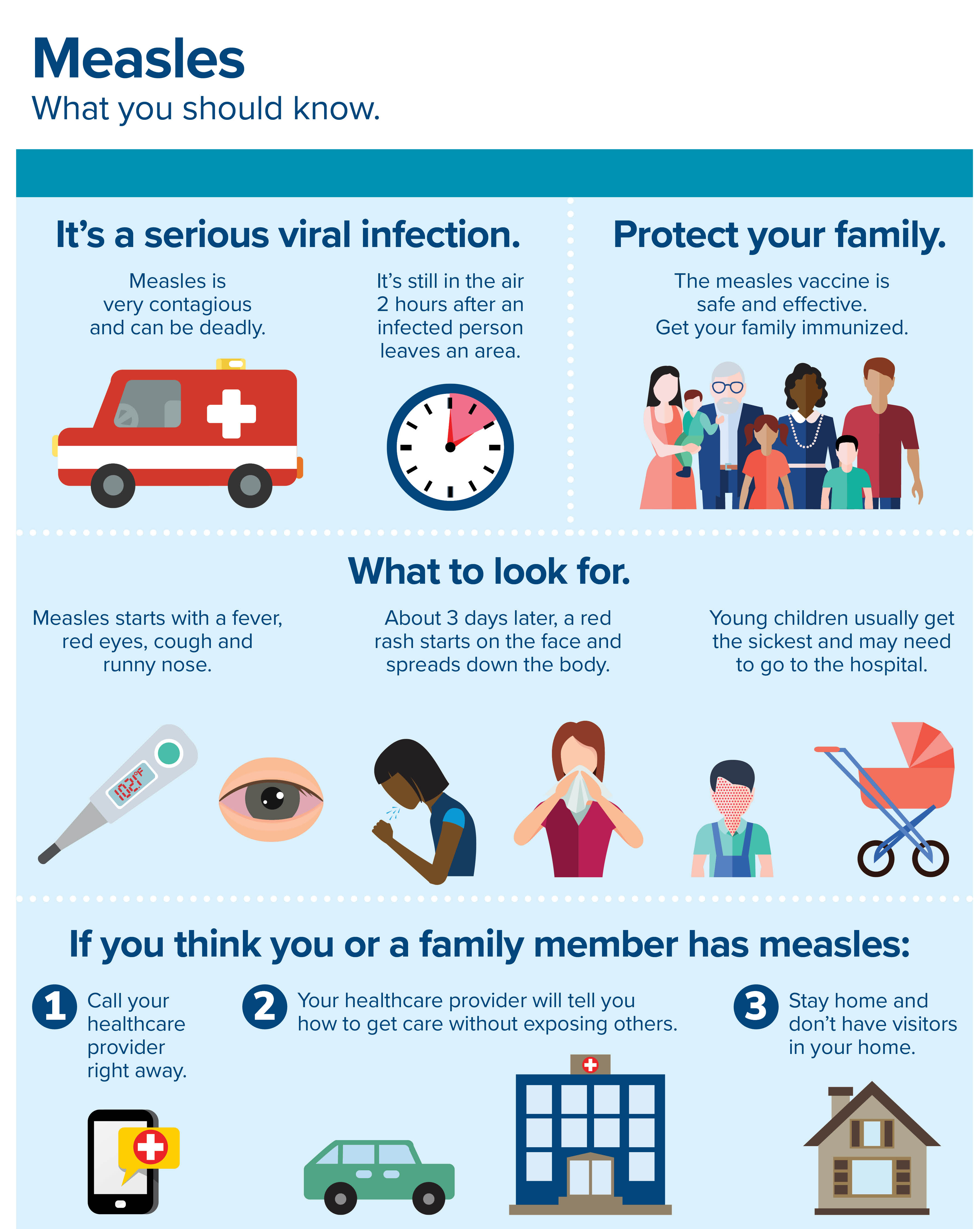
Maine CDC Alerts Public to Potential Measles Exposure in Southern Maine
The Maine Center for Disease Control and Prevention (Maine CDC) was notified by the Massachusetts Department of Public Health that on April 1, 2019 a confirmed case of measles in a Massachusetts resident visited two businesses in Maine on Wednesday March 27, 2019.
Maine CDC notified the two facilities and is working with them to ensure individuals who were potentially exposed are made aware.
Individuals were potentially exposed to measles if they were at the locations below during the following time periods:
- Skin Clinic in Falmouth, Maine on Wednesday March 27th between 10:55am and 1:05pm and
- Maine Centers for Healthcare Endoscopy in Westbrook, Maine on Wednesday March 27th between 11am and 2pm.
 Measles is a highly contagious viral disease characterized by fever; cough; runny nose; and red, watery eyes (conjunctivitis) followed by a rash that spreads from the head to the trunk to the lower extremities. Measles can cause severe health complications including pneumonia, encephalitis (brain swelling), and death. Measles is transmitted when an infected person coughs or sneezes; infected people are contagious from four days before their rash starts through four days afterwards. After an infected person leaves a location, the virus remains alive for up to two hours on surfaces and in the air. The incubation period (the period from exposure to onset of symptoms) is typically 10-14 days but can be as long as 21 days.
Measles is a highly contagious viral disease characterized by fever; cough; runny nose; and red, watery eyes (conjunctivitis) followed by a rash that spreads from the head to the trunk to the lower extremities. Measles can cause severe health complications including pneumonia, encephalitis (brain swelling), and death. Measles is transmitted when an infected person coughs or sneezes; infected people are contagious from four days before their rash starts through four days afterwards. After an infected person leaves a location, the virus remains alive for up to two hours on surfaces and in the air. The incubation period (the period from exposure to onset of symptoms) is typically 10-14 days but can be as long as 21 days.
Individuals potentially exposed should review their vaccine history and monitor for symptoms. Those who have not been immunized or do not know their measles immunization status should get vaccinated with at least one dose of measles, mumps, and rubella (MMR) vaccine to protect from subsequent exposures. Individuals who were exposed and begin to develop symptoms should contact their health providers for instructions before arriving at the providers’ offices or hospitals, to ensure precautions are taken to prevent further infection. If symptoms are consistent with the disease, testing may be performed to determine whether the individual is infected. Individuals without symptoms should not be tested.
“The best protection against measles is vaccination,” said State Epidemiologist Dr. Siiri Bennett. “Measles, mumps, and rubella (MMR) vaccine provides long-lasting protection against measles.”
The last reported case of measles in Maine was in 2017 in an individual who acquired it after traveling overseas.
Recommendations for children and adults are as follows:
- Children: All children should receive two doses of MMR. The first dose should be given at 12 through 15 months of age and the second at 4 through 6 years of age. Children who are 6 through 11 months of age who will be traveling internationally should receive 1 dose of MMR vaccine. Every effort should be made to identify and vaccinate children who are not up to date.
- Adults: All adults should have acceptable proof of immunity to measles, which is defined as written documentation of adequate vaccination, laboratory evidence of immunity, birth before 1957, or laboratory confirmation of disease. For adults with no evidence of immunity to measles, 1 dose of MMR vaccine is recommended, unless the adult is in a high-risk group (e.g., international travelers, health care workers, and college students), in which case, 2 doses of MMR vaccine are recommended. Women are advised to not receive any live virus vaccine during pregnancy, including MMR.
Measles is an immediately notifiable disease in Maine. Health providers should report all suspect cases of measles by phone to 1-800-821-5821.
For More Information:
- Maine CDC’s measles webpage: http://www.maine.gov/dhhs/mecdc/infectious-disease/epi/vaccine/measles.shtml
- Federal CDC’s measles webpage: http://www.cdc.gov/measles/index.html
- Maine Immunization Program webpage: https://www1.maine.gov/dhhs/mecdc/infectious-disease/immunization/.

FOR MORE INFORMATION, PLEASE CONTACT:
Emily Spencer, Maine Center for Disease Control and Prevention
(207) 213-5756 or Emily.Spencer@maine.gov







